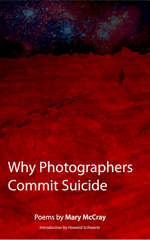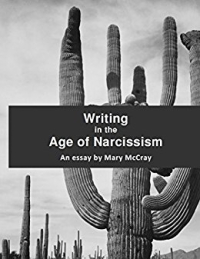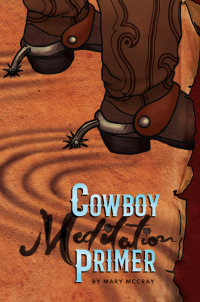 This week’s packet was a twofer, “On Being a Poet in America” and “To Make Words Disappear” by Louis Simpson. I have to say these are the first essays I didn’t like at all. I’ve noted that they were brought in by Greta and Andy, two poets at SLC who I DID like. The first essay can be found in the book Selected Prose and the second short essay from A Company of Poets, both books by Louis Simpson.
This week’s packet was a twofer, “On Being a Poet in America” and “To Make Words Disappear” by Louis Simpson. I have to say these are the first essays I didn’t like at all. I’ve noted that they were brought in by Greta and Andy, two poets at SLC who I DID like. The first essay can be found in the book Selected Prose and the second short essay from A Company of Poets, both books by Louis Simpson.
I’m quite immune to a kind of “grumpiness as display” from writers like Mark Twain. I’ve done it myself, learned from the somewhat stalwart grumpiness of my grandfather Stevens. But this grumpiness of Simpson's is far from charming. The last straw for me was reading in another book last week, essays by Maxine Kumin, that Simpson dismissively reviewed one of Anne Sexton’s books as “Menstruation at Forty.” On this side of #MeToo he comes off poorly. But here we go.
On Being a Poet in America
“On Being a Poet in America” starts with lofty goals with that title and he begins by telling us there is no shortage of poets short on talent, how talent cannot be “bought, borrowed, or stolen. Many pretend to have it…” I’m thinking here we’re dealing with fears of illegitimacy we all have as artists; but no, he’s got no soothing conclusion for fears of talent-less-ness.
He then talks about imaginary beginnings for good poets and how a poet should behave: “He will not serve other men. That is the occupation of a valet.” Seriously? That's dismissive to poets and valets.
The sections are basically small mini-rants with no real transitions or cohesion.
Then he talks about being seen as a writer: “The astonishment that anyone reads anything you write, and that anyone takes it seriously, as though it actually existed." This is good. This is a common feeling. But then he continues with "And then your resentment. What right do they have to read your mail?” Resentment? I think he’s revealing something of himself here, mistakenly attributing that feeling to all of us.
The next section is about how poets cannot have great audiences because, “The mark of a bad writer is that he is popular.” He outright dismisses popular culture and continues by saying “popularity…flatters the stupidity of the audience. But real poetry cannot be popular in its own time.” So much in here is messed up.
He goes on about the falseness of “artistic integrity” and how professors he has known who have bemoaned about it always end up as advertising executives. So…he's dismissive of both popularity AND artistic integrity. Pretty amazing.
The next short section declares this: “There is only one law for the poet—tell the truth!…tell the truth…if you are serious about it—and if you’re not, you aren’t a poet at all.” You know I hate this "poetry is" crap but especially today, in this world of propaganda and our polarizing struggles to define truth, this seems like such a quaint and naive idea. And his fury at the declaration marks hint the great struggle over truth might already be beginning.
But even when he’s full of himself and full of hot air, I still find something to like here, like these fiery sentences:
“I know too much about literary life. I know by what means, by what steady cultivation of his betters, by what obsequiousness in print and out of it, the mediocre writer gets himself a name…The need of fame has turned many a decent man into an envious, spiteful, vanity-ridden, self-deluding wretch. And what does he have to show for it? A handful of reviews.”
But then he's back to academic insults: “whether one writes ‘in form’ or ‘out of form,’ is not an essential question—it is a matter for simpletons to worry about" and “How easy it is to settle on a certain style, to write a certain poem over and over again! Most verse writers do just this. The publish a new book of the same poems every four years, and when they have repeated themselves often enough they win the Pulitzer.”
And then he has very lofty ideas about truth: "you find that you are wrestling with an angel….not witnessing but assisting at the birth of truth in beauty. Of course, to some people this is all nonsense. To a deaf man, music does not exist; to a blind man, there are no constellations in the sky.” There's no room for any kind of variation of experience or disagreement here. You are blind and deaf if you don’t agree with this.
The next section takes aim at critics: “Criticism in the last forty years has been largely an end in itself, a bastard kind of art, a kind of theatricals for shy literary men…when you examine the critic’s method, under the appearance of sweet reasonableness, there are only prejudices and taboos. The critic’s art depends on an exertion of his personality, an unstable quality.”
And here, even when you agree with him, you find yourself cringing at his own very "theatrical” vitriol. And then there’s the inconvenient fact here that a poets art also too often depends on the same kind of “exertion of his personality, an unstable quality.”
All this hints at sour grapes over being excluded in some kind of group. And hey, some of us out here should be able to relate to that. But he makes any kind of relatable connection impossible. I found this tone problem the very same that always crippled arguments between my grandfather and other people. His very valid truths would always get lost behind his presentation too. You see it all the time right now in political debates: smug republicans calling liberals smug. Smug liberals calling conservatives stupid. It just makes people entrench. But the hate is at such a high level, it cannot defuse itself and compromise collapses.
Simpson says, “the poem, the novel, the play. They deal in facts. But the critic deals in opinions.” This is simply not true. Art is full of opinions. And so it puts his whole idea of truths into question.
The last section talks about poets with “poetic intelligence” like Rilke, Yeats, Blake. “Poetic brains.” Frost drew “back from ultimate commitment” he says. "…a poet of original and purely poetic talent….would make up new ways of seeing things; he would push metaphor to the limit. And if such a poet were also interested in ordinary life, we would have great American poetry. Such a poet would not have to justify his existence in America; the rest of us would have to justify ourselves to him.”
You read that and wonder if that sounds like humility coming from Simpson or him suggesting that such a poet is himself.
To Make Words Disappear
“To Make Words Disappear” talks about “emotional intensity” being “what poetry consists of.” Here we go again. This is the issue with surrealism, Simpson says. Emotion needs “a narrative line” and poets “seem to think that it is enough to say that they are having a feeling.”
He also doesn’t like “poetry that preaches…a poet berating people for their shortcomings—for example, for not being as ‘politically aware’ as he is.”
“There is a lot of hard breathing going on…you may feel sympathetic, but it doesn’t do a thing for your life.”
If that’s not a narcissistic statement, I've never heard one. What can this poem do for me?
But then hilariously he adds, “It would be better if he were less self-absorbed and told you something that was interesting”
Something interesting according to you. It’s all about you. It's not always about you. I think that's the cautionary tale of these essays.
















